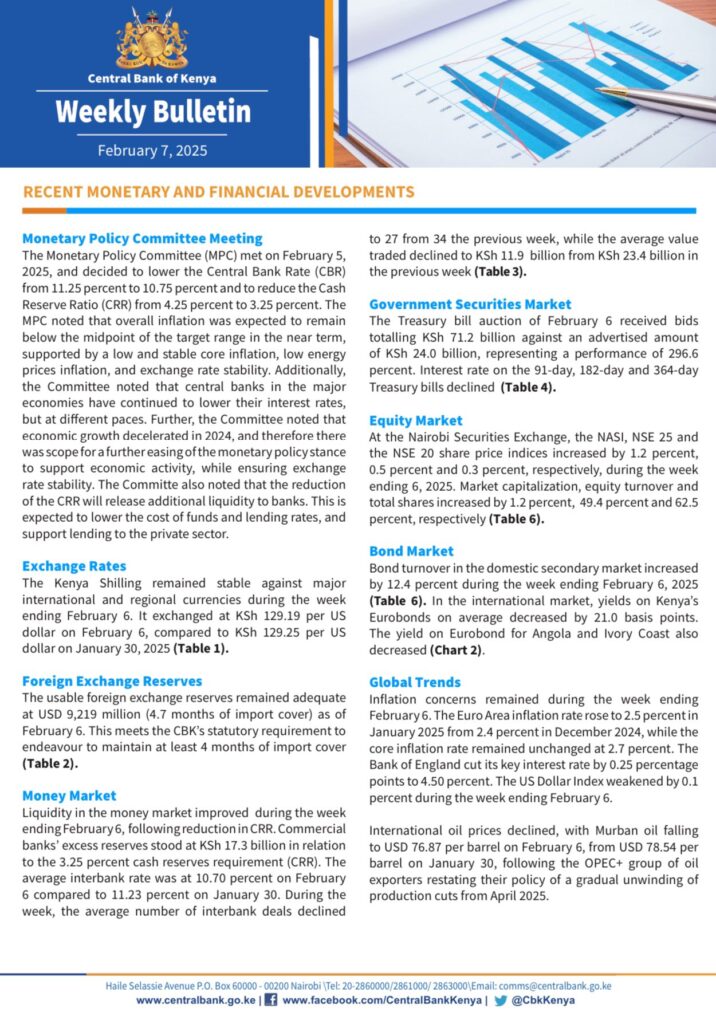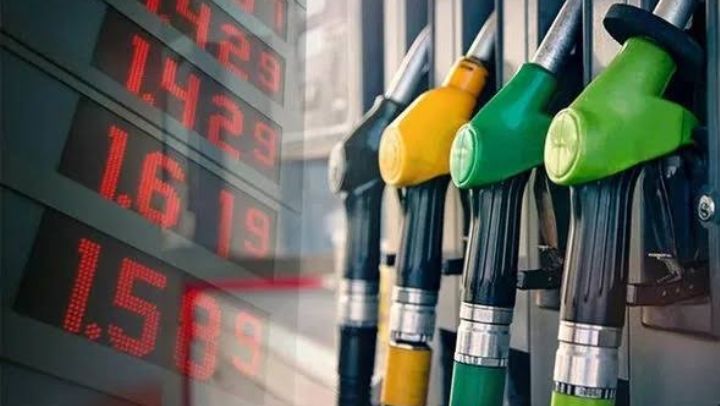The Central Bank of Kenya (CBK) has announced a decrease in global oil prices ahead of the Energy and Petroleum Regulatory Authority’s (EPRA) fuel review next week.
In its weekly bulletin published on Friday, February 7, the central bank indicated that worldwide oil prices had dropped, with Murban oil decreasing to Ksh9,916 per barrel on February 6 from Ksh10,131 per barrel on January 30.
The regulator highlighted that oil prices in the worldwide market fell as oil exporters resumed their customary production of more crude oil for importing countries.
It is important to note that a rise or decrease in the price of crude oil may result in higher or lower retail fuel prices in most nations.

Fuel use, however, is unaffected by fluctuations in global crude oil prices.
However, because Kenya imports its oil through a Government-to-Government oil arrangement with four Gulf businesses, changes in international oil prices have little impact on the country.
The impact on Kenya is not grave because the price specified in the G-to-G agreement is frequently based on a predetermined premium above the current world oil price.
This means that changes in the worldwide market have no direct impact on the cost of oil imports under the agreement.
The country pays a premium of approximately $90 (about Ksh11,610 in current exchange rates) per barrel for gasoline and $88 (about Ksh11,320 in current exchange rates) per barrel for diesel.

Unfortunately, this pricing is much higher than the global market average. Similarly, when global prices fall, the G-to-G price may not adapt as rapidly, potentially leading to greater expenses for the importing country than buying on the open market.
Meanwhile, the central bank reported that inflation concerns remained steady during the week ending February 6, allaying fears of a rise in fuel prices.
Despite rising inflation rates in certain European countries, the core inflation rate stayed steady at 2.7% in January compared to December 2024.
In addition, the Kenyan shilling remained flat versus key foreign and regional currencies during the week ending February 6.
According to central bank data, the local currency exchanged at Ksh129.19 per US dollar on February 6, versus Ksh129.25 per US dollar on January 30, 2025.
EPRA is anticipated to announce the month’s new fuel prices on February 14, with most Kenyans expecting a decrease in prices due to beneficial monetary policies, particularly the stability of the local currency.
A decline in fuel costs this month could signal a departure from last month’s evaluation when the regulator raised fuel prices.
On January 14, EPRA Director General Daniel Kiptoo said that Super Petrol, diesel, and kerosene prices have increased by Ksh0.2, Ksh2, and Ksh3 respectively.





















Add Comment